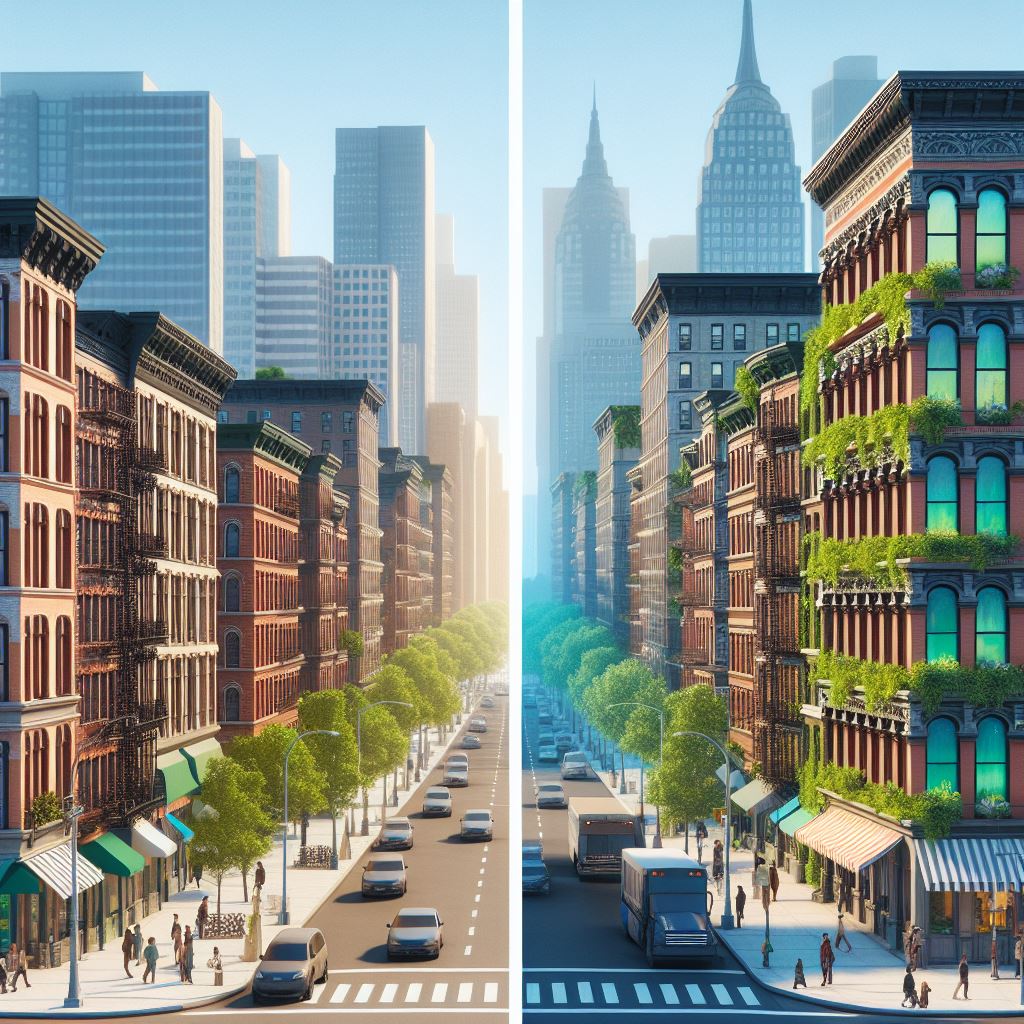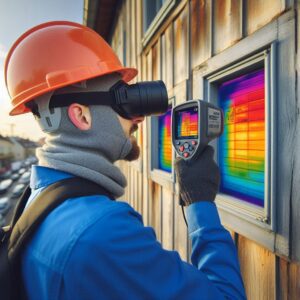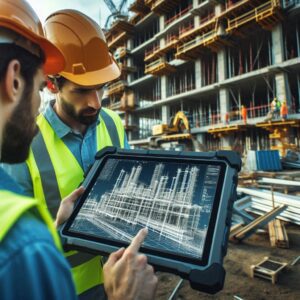Introduction
Nestled between the Pacific Ocean and the San Francisco Bay, the iconic city of San Francisco is known for its rolling hills, eclectic architecture, and a progressive stance on environmental issues. In recent years, the city has become a beacon of sustainability, with LEED Certification becoming a standard for buildings that embody efficiency and environmentally sound practices. Central to this green transformation are San Francisco Energy Audits, essential tools that pave the way for buildings to achieve LEED status and contribute to the city’s ambitious sustainability goals.
Brief Explanation of LEED Certification
LEED, or Leadership in Energy and Environmental Design, is an internationally recognized certification system that provides third-party verification of green buildings. Developed by the U.S. Green Building Council (USGBC), LEED encompasses a wide range of criteria, including energy savings, water efficiency, CO2 emissions reduction, improved indoor environmental quality, and stewardship of resources. By meeting specific leed certification requirements, buildings can be awarded Certified, Silver, Gold, or Platinum status – a testament to their sustainable design and operation.
Importance of LEED Certification in Sustainable Building Practices
LEED certification has become a significant factor in real estate development and renovation. It signals to developers, investors, tenants, and the community at large that a building has been designed and constructed with an eye toward environmental responsibility. In a city like San Francisco, where environmental awareness is high, LEED Certification stands out as a tangible measure of commitment to Sustainable Building Practices and Green Building Certification, reinforcing the city’s image as a leader in eco-friendly urban living.
Overview of Energy Audits and Their Relevance to LEED
An energy audit is a comprehensive assessment of a building’s energy use, with the goal to identify opportunities to improve efficiency and reduce costs. In San Francisco, conducting an energy audit is not just a measure of good practice but often a requirement for compliance with local energy conservation ordinances. These audits provide a critical roadmap for any commercial building owner or manager aiming for LEED certification, as energy efficiency is a key factor in achieving the desired LEED points under the Energy and Atmosphere credit category.
The Process of Achieving LEED Certification
Achieving LEED certification is a multi-step process that involves registering the project, adhering to specific prerequisites, earning points across various credit categories, and submitting a comprehensive application for review by the USGBC. Throughout this process, energy audits serve as a foundational element, informing project teams of the performance gaps and spotlighting strategies to achieve energy efficiency.
Energy Audits: What are They and Why are They Important
An energy audit includes various assessments ranging from a simple visual inspection to an in-depth analysis involving data collection and monitoring. The audit results in a list of recommended improvements such as upgrading to energy-efficient lighting, enhancing insulation, or installing advanced HVAC systems. For buildings pursuing LEED certification, these recommendations are essential for making the necessary adjustments to meet the stringent Green Building Certification standards.
The Different Types of Energy Audits
Energy audits are classified into different levels. Level I is a basic walk-through audit, Level II includes more detailed energy analysis and cost savings calculations, and Level III is a comprehensive analysis of capital-intensive modifications that focuses on potential changes involving significant investment and long-term payback.
Understanding the Importance of Energy Audits in LEED Certification
Energy efficiency is a cornerstone of the LEED certification system, accounting for a significant portion of the available points. A detailed energy audit can spotlight areas where a building can improve its performance, from simple behavioral changes and equipment adjustments to major retrofits. Comprehensively understanding a building’s energy profile is pivotal for developing strategies that not only minimize environmental impact but also optimize operational costs, directly impacting the LEED Certification process.
The Role of Energy Audits in LEED Certification
An energy audit can be the difference between achieving the desired level of LEED certification or missing the mark. For instance, optimizing energy performance can earn up to 18 points in the LEED BD+C: New Construction rating system. It requires precise energy modeling and analysis – components inherent in an Energy Audit. Moreover, the pursuit of energy efficiency often uncovers additional opportunities for sustainable practices, such as water conservation or improved indoor environmental quality, which can further contribute to a building’s LEED point tally.
How Energy Audits Contribute to Getting LEED Points
During an energy audit, auditors use various diagnostic tools and tests to create a clear picture of a building’s energy use. Through this analysis, they identify improvements that can lead to significant energy savings. Implementing these improvements can directly affect the Energy & Atmosphere credits within the LEED system, thereby securing valuable points towards the certification.
The Role of Energy Efficiency in LEED Certification
Energy efficiency is not just about reducing energy consumption and cost; in the context of LEED, it is also about creating a healthier, more sustainable environment. Buildings that perform well in terms of energy efficiency typically provide better indoor environments, which is associated with increased productivity, improved health for occupants, and an overall reduction in the building’s carbon footprint.
LEED Certification in San Francisco: A Closer Look
San Francisco’s skyline is dotted with buildings that wear LEED certification as a badge of honor. The city’s commitment to sustainable development is reflected in its high-performance buildings and the policies that encourage their proliferation. For example, the [San Francisco Environment Code](https://sfenvironment.org/existing-commercial-buildings-energy-performance-ordinance) includes the Existing Commercial Buildings Energy Performance Ordinance, which requires commercial buildings to benchmark their energy usage and conduct regular Energy Audits to inform better management of energy consumption.
San Francisco’s Approach to Sustainable Building and Energy Efficiency
San Francisco is a leader in green building initiatives, adopting rigorous standards to ensure that buildings contribute positively to the environment. The city’s approach emphasizes not only efficiency and sustainability but also resilience, ensuring that its infrastructure can withstand the challenges of climate change. This forward-thinking approach solidifies San Francisco’s position as a sustainable city, committed to protecting the environment and the well-being of its residents.
Local Policies and Initiatives Supporting LEED Certification
San Francisco’s policymakers have long recognized the importance of green building practices. Local initiatives, such as the Green Building Ordinance, require new construction and major renovations to achieve LEED certification, driving the market toward greener, more sustainable construction methods. These policies, coupled with incentives for buildings to achieve higher levels of certification, show the city’s dedication to a sustainable and energy-efficient future.
The Future of Energy Audits and LEED Certification in San Francisco
The trend towards sustainability and LEED certification in San Francisco shows no signs of slowing down. The city continues to set ambitious goals for reducing greenhouse gas emissions and energy consumption, and energy audits will play a critical role in this ongoing journey. The insights provided by audits will be essential for building owners to navigate the evolving landscape of environmental standards and to ensure compliance with future policies aimed at enhancing building sustainability.
Policies That Could Enhance the Importance of Energy Audits for LEED Certification
Looking forward, policies that provide incentives for comprehensive energy audits, or possibly mandate them for certain building types or sizes, could have a profound impact. Furthermore, integration of renewable energy standards and sustainability education for building professionals and the public alike could enhance the role of energy audits in the pursuit of LEED certification.
Conclusion
In the quest for a more sustainable and eco-friendly San Francisco, energy audits emerge as a critical tool, serving as the compass guiding buildings toward the prestigious distinction of LEED certification. The connection between energy audits and LEED is indisputable, with each audit providing the knowledge and direction necessary for buildings to enhance their performance and environmental stewardship. As more buildings in the city undertake this green journey, energy audits will continue to shape the landscape of San Francisco, encouraging a future where sustainable practices become the norm rather than the exception.
San Francisco’s commitment to green building and sustainability serves as an inspiring blueprint for cities worldwide. With energy audits as a catalyst, the city’s skyline is not only defined by its beauty but also by its dedication to a greener, more sustainable future. As we move forward, the importance of energy audits will only grow, further entwining with the goals of LEED certification to foster an environment where both buildings and residents thrive.
VertPro.com serves as a resourceful platform for property owners and managers seeking to enhance their buildings’ energy efficiency. The site offers a range of services, including Commercial Energy Audits, Benchmark Compliance consultancy, and a Construction Marketplace. At the heart of VertPro® is a suite of SaaS technology-based solutions designed to assist in navigating the complexities of Energy Benchmarking and Energy Audits/RCx Plus, while ensuring adherence to over 60 Energy Benchmarking and Energy Efficiency Laws across the country.
For those looking to improve their property’s energy usage and operational value, VertPro.com provides a diverse array of tools and information. The site aims to facilitate a better understanding of energy efficiency practices and legislation, helping building owners and property managers make informed decisions about their energy strategies while complying with all energy ordinances and laws.

















